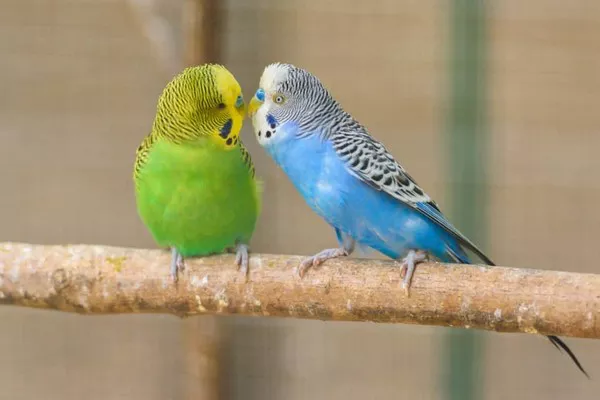Cockatiels, with their vibrant plumage, charming personalities, and distinctive crest, are one of the most popular pet bird species around the world. If you’re considering bringing a cockatiel into your home, it’s essential to understand their lifespan in captivity. In this article, we will explore the factors that influence the lifespan of cockatiels, provide an average lifespan range, and offer insights into promoting their longevity through proper care and attention.
Factors Affecting Cockatiel Lifespan:
Several factors contribute to the lifespan of cockatiels in captivity. These include genetics, diet, environment, veterinary care, and overall quality of care provided by their owners. Understanding and addressing these factors can help ensure the well-being and longevity of your feathered friend.
Genetics: Genetic factors play a significant role in determining a cockatiel’s lifespan. Some birds may have inherited health conditions or predispositions that can impact their overall longevity. It is crucial to choose a reputable breeder or source when acquiring a cockatiel to minimize the risk of genetic issues.
Diet and Nutrition: Providing a balanced and nutritious diet is vital for the health and longevity of cockatiels. A diet consisting of high-quality commercial bird pellets, fresh vegetables, fruits, and occasional treats designed for cockatiels is recommended. Proper nutrition supports their immune system, organ function, and overall well-being.
Environment and Housing: A stimulating and safe environment is crucial for cockatiels to thrive. Ensure that their cage is appropriately sized, providing ample space for movement and exercise. A variety of perches, toys, and mentally stimulating activities can keep them engaged and prevent boredom or behavioral issues.
Veterinary Care: Regular check-ups with an avian veterinarian are essential to monitor the health of your cockatiel. Routine examinations, vaccinations, and preventive treatments for parasites or diseases can help catch any potential health issues early on, leading to appropriate intervention and improved lifespan.
Quality of Care: The level of care provided by owners greatly impacts the overall well-being and lifespan of cockatiels. Attention to their physical and emotional needs, such as regular social interaction, mental stimulation, and environmental enrichment, promotes a healthy and fulfilling life.
Average Lifespan of Cockatiels:
On average, cockatiels live between 15 to 20 years in captivity. However, with proper care, some cockatiels have been known to live well into their 20s and even 30s. The lifespan of cockatiels can vary depending on individual factors and the quality of care provided.
Promoting Longevity and Well-being:
To ensure the long and healthy life of your cockatiel, consider the following tips:
Balanced Diet: Provide a nutritionally balanced diet consisting of high-quality pellets, fresh fruits, vegetables, and occasional treats appropriate for cockatiels. Avoid feeding them harmful foods like avocado, chocolate, caffeine, and salty or sugary treats.
Environmental Enrichment: Create an enriching environment for your cockatiel with a variety of perches, toys, and opportunities for mental stimulation. Rotate and introduce new toys regularly to prevent boredom and provide mental engagement.
Social Interaction: Cockatiels are social creatures and thrive on human interaction. Spend quality time with your bird, engaging in gentle handling, talking, and playing together. However, respect their need for rest and downtime.
Regular Veterinary Care: Schedule routine check-ups with an avian veterinarian to monitor your cockatiel’s health and address any potential concerns promptly. Follow their recommendations for vaccinations, preventive treatments, and general care.
Safety and Hygiene: Create a safe and clean environment for your cockatiel. Ensure their cage is free from hazards, such as toxic plants, chemicals, or unsafe materials. Regularly clean their cage and provide fresh food and water daily.
Exercise and Flight: Allow your cockatiel regular supervised flight time outside the cage to promote physical exercise and mental stimulation. Ensure the area is safe and bird-proofed to prevent accidents or escape.
Mental Stimulation: Cockatiels are intelligent birds that benefit from mental stimulation. Offer puzzle toys, foraging opportunities, and interactive games to keep their minds active and prevent boredom.
Emotional Well-being: Cockatiels thrive on social interaction and the company of their owners. Avoid prolonged isolation and provide opportunities for socialization and companionship. Consider getting a compatible companion bird if appropriate.
In conclusion, cockatiels can live a long and fulfilling life in captivity when provided with proper care, nutrition, and environmental enrichment. By understanding the factors that contribute to their lifespan and implementing appropriate care practices, you can ensure the well-being and longevity of your feathered friend. The bond and joy you share with your cockatiel will be rewarding as you both navigate the years together.
Recommended reading:


























